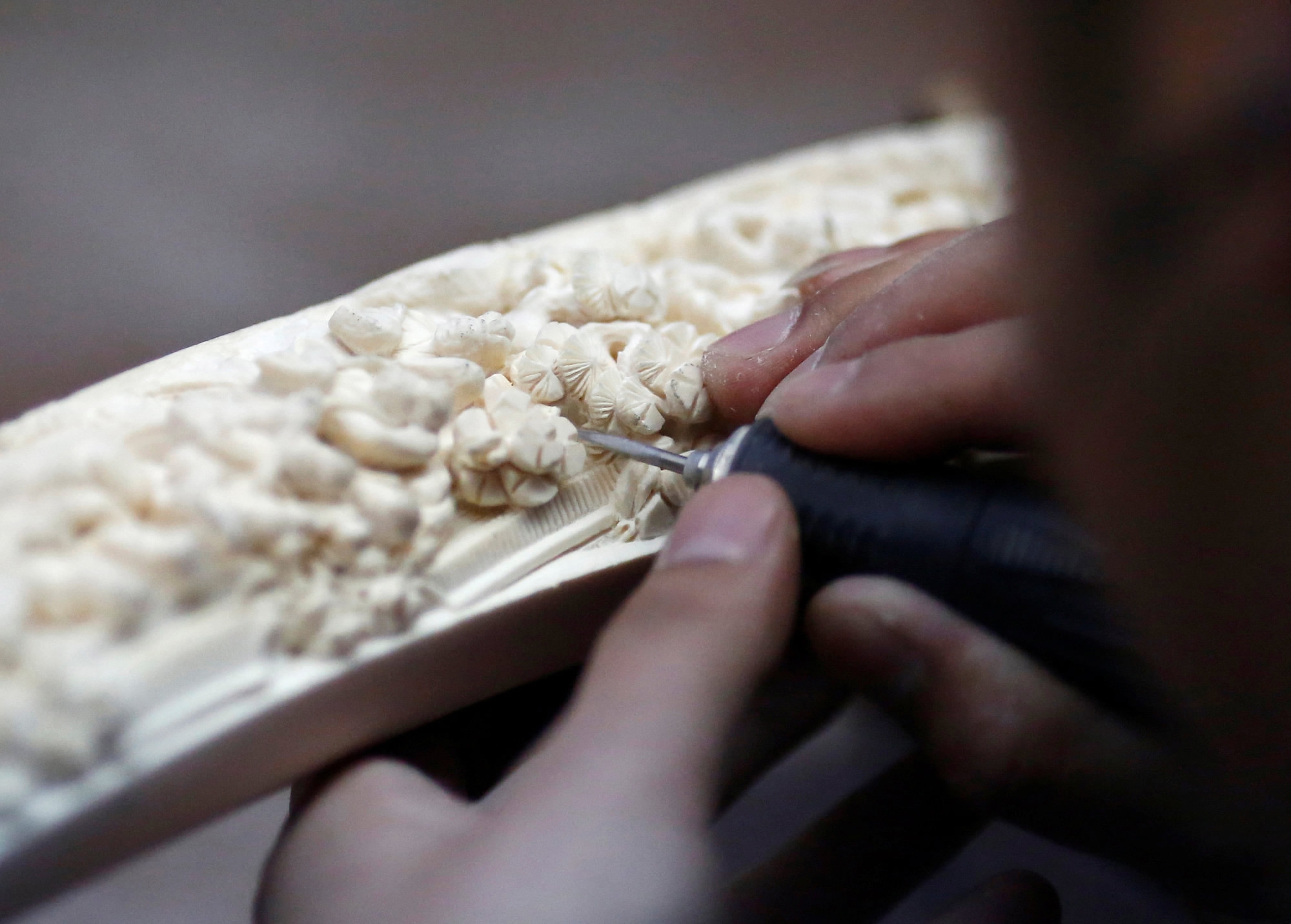By CGTN's Luo Yu
China has so far shut 67 ivory factories and retail stores that account for about one-third of the country's total outlets. The remaining 105 venues will be closed by the end of the year in accordance with the country's landmark decision to ban all ivory trade and processing activities by the end of 2017.
Zhang Dehui, Division Chief of Wildlife Conservation Office of China’s Forestry Administration told CGTN that the process of selecting the 12 processing entities and 55 retail outlets was based on reducing loss and their willingness.
All levels of the forestry administration notified those companies about the date of closing and their rights, and asked them to close their businesses or risk having their licenses for ivory processing and trade canceled.

Zhang Dehui, division chief of Wildlife Conservation Office of China’s Forestry Administration spoke to CGTN on China’s ivory ban. /CGTN Photo
But environmentalists remain concerned.
Wang Aimin, the director of the Wildlife Conservation Society in China, told CGTN “Regarding the existing legal ivory stock and the auction of antiques, we expect clear guidelines and regulations from the government.”
The state forestry administration said that unsold and unprocessed items can be transported to the remaining 105 venues, but December 31 will be their last day of ivory sale operations.
“The rest of the raw materials will be used in non-commercial activities. For example, exhibitions in museums and the restoration of antiques,” said Zhang.
A lot of craftsmen will have to change their jobs.
“It sounds like a serious issue that is hard to deal with, well, in fact, it’s not,” Zhang stated, contending that those working in the ivory industry can just make an easy transition to carve on jade, bones and roots instead of elephant tusks.
There are some positive signs appearing in the market as China’s historic ivory ban has led to a sagging legal ivory market.

Wang Aimin, China program director of the Wildlife Conservation Society spoke to CGTN on China’s ivory ban. /CGTN Photo
Researchers working for the conservation organization ‘Save the Elephants’ have found that the wholesale price of legal raw ivory in Beijing and Shanghai has dropped by almost two thirds since China announced plans to close down its domestic market late last year.
And it's not only Beijing and Shanghai that are seeing huge price drops. Six other Chinese cities, whose markets had never been surveyed before, including eastern China’s Hangzhou and Nanjing, and the northeastern city of Shenyang, revealed the same trend.
Although China has a 3,000-year tradition of carving on ivory, and shutting down its ivory market completely won’t be easy, changes have taken place across the country.
Wang said that Chinese consumers are more aware that buying ivory is having a negative impact on Africa’s elephant populations.
The government has been partnering with NGOs to promote the idea of wildlife protection and there have been intensive public awareness campaigns that have involved celebrities such as Jackie Chan and Yao Ming.

A man carves ivory at a workshop in Beijing on March 31, 2017. /CFP Photo
“China has been spearheading the effort to close its ivory market. This will help devalue ivory tusks and quash demand. Meanwhile, it will put pressure on other developing and developed countries to further clamp down on their domestic markets in a bid to save the wild African elephant population,” said Wang.
China is the world's largest consumer of ivory, but global effort will be needed to succeed in conservation efforts of Africa’s elephants.
For instance, people can still legally deal in ivory in some European countries, and there are trade hubs in East and Southern Africa, Southeast Asia and China’s Hong Kong.
After China issued the total ban, industry experts said Japan is likely to take over from China as the largest legal ivory market.
''There are many other countries that still allow ivory processing and sales for commercial purposes. And commercial hunting of African elephants is not prohibited in some countries. We hope that these countries will evaluate their current policies on elephant protection and take further action,'' said Zhang.
The state forestry administration says China has provided 10 million dollars to African countries for the protection of elephants and other wildlife. And more training programs will be launched by China for African countries in law enforcement to protect threatened species this year.









